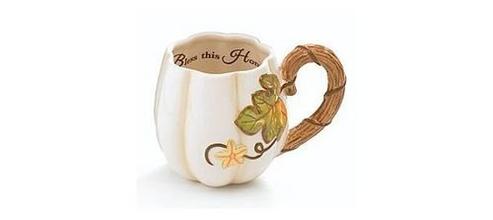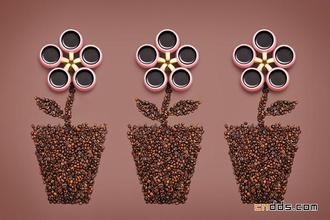Kenya Jinchu Coffee Variety characteristics and Flavor description introduction of Fine Coffee
If you know how to brew coffee without knowing how to taste it, the original taste may become tasteless. Some taste coffee is to use the tongue to feel the taste, and some enjoy the kind of aromatic alcohol in the mouth, in addition to this, but also depends on the body when drinking coffee, the surrounding atmosphere and so on. In short, coffee tasting is a very delicate matter.
When drinking coffee in a poor coffee shop, sometimes you will drink nearly half cold coffee. No matter how good the quality of coffee beans is, and how good the brewing skills are, you will lose your appetite for coffee. "Drink hot" is a necessary condition for tasting delicious coffee, even if it is hot coffee in the summer. When coffee is cold, the flavor will be reduced, so when brewing coffee, in order not to reduce the taste of coffee, the coffee cup should be soaked in boiling water in advance. The appropriate temperature of coffee is 83 degrees Celsius at the moment of brewing, 80 degrees Celsius when poured into the cup, and 61-62 degrees Celsius when it reaches the mouth.
The Kenyan government takes the coffee industry extremely seriously, and it is illegal to cut down or ring coffee trees here. Kenya's coffee buyers are world-class buyers of premium coffee, and no country grows, produces and sells coffee as consistently as Kenya. All coffee beans are first acquired by the Coffee Board of Kenya (CBK), where they are appraised, graded and then sold at weekly auctions, where they are no longer graded. The Kenya Coffee Board acts only as an agent, collecting coffee samples and distributing them to buyers so that they can determine price and quality. Nairobi auctions are held for private exporters and the Kenya Coffee Board pays growers below-market prices. The best coffee grade is bean berry coffee (PB), followed by AA++, AA+, AA, AB, etc., in that order. Fine coffee is shiny, delicious and slightly aromatic, rich, fruity and rich in taste. Kenya coffee has a wonderful fruity flavor, with a blackberry and grapefruit flavor, is a favorite of many coffee lovers. This coffee has an excellent medium purity, crisp and refreshing taste. Fresh flavor and best for iced coffee in summer. When tasting this coffee, if it is accompanied by fruit with acidity such as grapefruit, it will definitely give me the best coffee experience. "Less coffee, more fruit tea" is the common feeling of many people about this kind of light-roasted Kenyan coffee. There are two types of coffee farms in Kenya. One is a large plantation covering more than five acres, but the elevation is relatively low. For Kenyan coffee, the coffee beans of the large farm are only of medium quality. The best Kenyan beans are produced in small farms, mostly located in the foothills or hillsides above 5,000 or 6,000 feet. Each small farmer can only produce about 20 to 70 bags per season. They cannot afford to invest in expensive washing and treatment plants. However, small farmers are very united. Hundreds or thousands of families set up cooperative farms. The washing and treatment plants are funded by the government. The coffee fruits picked by small farmers are sent to cooperative farms for unified processing. First, the half-ripe or rotten fruits are removed, and then peeled, fermented, The process of breaking down the pulp, removing the beans, drying and polishing is supervised by the official Coffee Authority, which is quite rigorous and ensures the quality of Kenyan coffee. Kenya bean washing processing technology and high standard pipe, has been a model of bean producing countries

Important Notice :
前街咖啡 FrontStreet Coffee has moved to new addredd:
FrontStreet Coffee Address: 315,Donghua East Road,GuangZhou
Tel:020 38364473
- Prev

Intense aroma of Guatemala Floral Coffee Variety characteristics Flavor description
Coffee was introduced to Guatemala in 1750 by Father Jesuit, and German colonists developed the coffee industry in the late 19th century. Today, most of the coffee industry is produced in the south of the country. Guatemala has seven major coffee producing areas, each producing area produced by the coffee flavor is different, but in summary, Guatemala coffee are
- Next

Full-scented Costa Rican Tarazhu Coffee Flavor description Variety characteristics introduction
Coffee was introduced into Costa Rica from Cuba in 1729. Today, its coffee industry is one of the well-organized industries in the world, with a yield of 1700 kg per hectare. Costa Rica has only 3.5 million people but 400m coffee trees, and coffee exports account for 25 per cent of the country's total exports. The volcanic soil of Costa Rica is very fertile and well drained, especially in the central part.
Related
- Detailed explanation of Jadeite planting Land in Panamanian Jadeite Manor introduction to the grading system of Jadeite competitive bidding, Red bid, Green bid and Rose Summer
- Story of Coffee planting in Brenka region of Costa Rica Stonehenge Manor anaerobic heavy honey treatment of flavor mouth
- What's on the barrel of Blue Mountain Coffee beans?
- Can American coffee also pull flowers? How to use hot American style to pull out a good-looking pattern?
- Can you make a cold extract with coffee beans? What is the right proportion for cold-extracted coffee formula?
- Indonesian PWN Gold Mandrine Coffee Origin Features Flavor How to Chong? Mandolin coffee is American.
- A brief introduction to the flavor characteristics of Brazilian yellow bourbon coffee beans
- What is the effect of different water quality on the flavor of cold-extracted coffee? What kind of water is best for brewing coffee?
- Why do you think of Rose Summer whenever you mention Panamanian coffee?
- Introduction to the characteristics of authentic blue mountain coffee bean producing areas? What is the CIB Coffee Authority in Jamaica?

